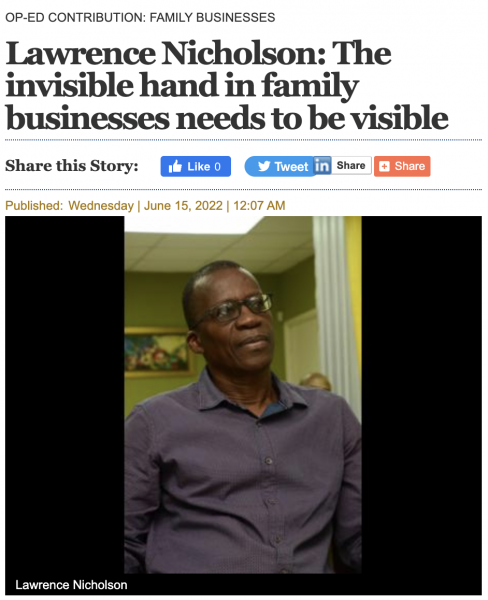
The long and storied history of family-owned businesses, FOBs, has been plagued by the hurdle of not always recognising the real influence in many successful family ventures – the ‘invisible hand’ of the woman.
The role and influence of women in FOBs are more than the relic of the past, where, inter alia, women were denied loans from financial institutions to start or support businesses, unless such agreement was signed or co-signed by their husbands or male partners.
This was not the case of a far-away country, but prevailed in Jamaica up to the late 1960s and, others will insist, beyond that period.
While we are not in the relic of the 1960s, research shows that we have a far way to go. The following quote from a recent KPMG study is instructive: “Encouraging studies have examined women’s changing roles over the years. However, studies that examine the role of women in family businesses are sparse and fragmented. Various scholars have indicated the need for more systematic and extensive research into the factors that are affecting women’s involvement, leadership, and performance in family businesses.”
What is the case in Jamaica?
A 2004 survey of family-owned and women-owned businesses found that WOBs – women-owned businesses – represented the fastest-growing business segment in Jamaica. A follow-up study in 2012 found that women represent the “invisible hand” in many FOBs.
Unfortunately, there are cases that belie the anchoring role of women in FOBs in Jamaica.
Article & Photo from: The Gleaner